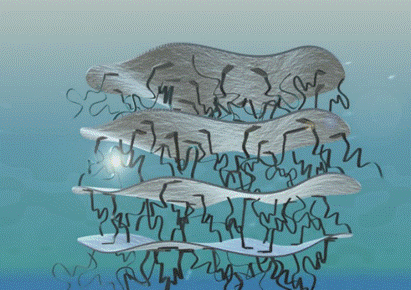Pollution Prevention
CONCORDE![]() (Co-ordination of Nanostructured Catalytic Oxides Research and Development in Europe) is a Europe-wide initiative to coordinate basic and applied research on nanostructured oxide catalysts. By sharing knowledge it is helping spread the use of new catalysts for sustainable chemistry and, by encouraging collaboration between European laboratories working in catalysis, it is contributing to the development of this important area of chemical technology. Improved catalysts can reduce fuel consumption, provide cleaner industrial processes and reduce waste. More than 30% of the world GDP and over 80% of industrial chemistry is dependent on chemical catalysis, while metal oxide catalysts play a key role in the production of petrochemicals, energy applications and in environmental protection. The surface structure of the catalyst at the nanometre scale has a great influence on its performance. Current research activities include catalyst preparation methods and development of new catalysts, surface chemistry and properties, catalytic reactions and reactor engineering.
(Co-ordination of Nanostructured Catalytic Oxides Research and Development in Europe) is a Europe-wide initiative to coordinate basic and applied research on nanostructured oxide catalysts. By sharing knowledge it is helping spread the use of new catalysts for sustainable chemistry and, by encouraging collaboration between European laboratories working in catalysis, it is contributing to the development of this important area of chemical technology. Improved catalysts can reduce fuel consumption, provide cleaner industrial processes and reduce waste. More than 30% of the world GDP and over 80% of industrial chemistry is dependent on chemical catalysis, while metal oxide catalysts play a key role in the production of petrochemicals, energy applications and in environmental protection. The surface structure of the catalyst at the nanometre scale has a great influence on its performance. Current research activities include catalyst preparation methods and development of new catalysts, surface chemistry and properties, catalytic reactions and reactor engineering.
AMBIO![]() (Advanced Nanostructured Surfaces for the Control of Biofouling) is a project to apply molecular engineering for the development of antifouling coatings that function through their nanoscale physico-chemical properties, without employing biocides that are damaging to the environment. Aquatic biofouling occurs when marine micro-organisms, animals and plants attach themselves to ships, water outlets and underwater installations. Biofouling in power plants, desalination systems and fish farms has very great economic costs. It has traditionally been controlled by means of antifouling paints that contain compounds which are toxic to the organisms. Recently introduced regulations require that antifouling coatings must not cause adverse effects in the environment, and the search is underway for environmentally friendly ways of preventing marine life from attaching itself to the hull of a vessel. These new coatings will protect the environment because the use of toxic biocides will no longer be necessary and keeping ship hulls cleaner will reduce fuel consumption, resulting in reduced carbon dioxide emissions.
(Advanced Nanostructured Surfaces for the Control of Biofouling) is a project to apply molecular engineering for the development of antifouling coatings that function through their nanoscale physico-chemical properties, without employing biocides that are damaging to the environment. Aquatic biofouling occurs when marine micro-organisms, animals and plants attach themselves to ships, water outlets and underwater installations. Biofouling in power plants, desalination systems and fish farms has very great economic costs. It has traditionally been controlled by means of antifouling paints that contain compounds which are toxic to the organisms. Recently introduced regulations require that antifouling coatings must not cause adverse effects in the environment, and the search is underway for environmentally friendly ways of preventing marine life from attaching itself to the hull of a vessel. These new coatings will protect the environment because the use of toxic biocides will no longer be necessary and keeping ship hulls cleaner will reduce fuel consumption, resulting in reduced carbon dioxide emissions.

Organically modified nanoclays to create nanocomposite antifouling coatings.
(C.H.A. Rentrop, TNO Eindhoven)